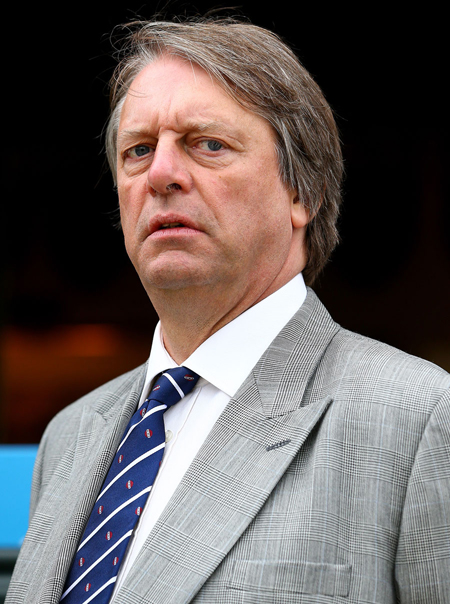The BCCI and the ECB are in agreement over the dilution of power to be exercised by the new ICC chairman and would like the role to be reduced from head of executive office in the ICC to that of a convenor. The BCCI president N Srinivasan and ECB chairman Giles Clarke met on Wednesday in London and one of the developments from that meeting is expected to be a proposal to re-examine the powers and responsibilities of the first ICC chairman, a position expected to come into being as of 2014.
Srinivasan and Clarke’s discussions took place on the eve of a two-day ICC Executive Board meeting which began in London on Thursday. An official privy to their talks told ESPNcricinfo that Srinivasan and Clarke, “agreed that there is no role for the chairman in the ICC. It is just an additional layer of bureaucracy which they believe is not necessary. So they are proposing the role of the chairman as a meeting convenor or facilitator on a rotational basis.”
It is understood that the central reason behind this turnaround of opinion rests on the fact that one of the most powerful committees on the ICC is the Finance and Commercial Affairs committee, chaired by Clarke and of which Srinivasan is a member. It is possible that the prospect of control over this committee being reduced with the arrival of a chairman with greater powers may have played a part in what, if it transpires, will be a change of heart around the new position.
Until Wednesday, both Srinivasan and Clarke were the frontrunners in assuming the role of the chairman which had been recommended by the ICC Board in 2012, in which both Clarke and Srinivasan are members. The move to introduce a chairman in 2012 was taken in order amend the ICC constitution and turn the role of the ICC president into a ceremonial one, while vesting executive powers in a new chairman.
At the time the Board had said then that the creation of the post of chairman was “consistent with recommendations in the Woolf Report.” Lord Woolf, leading the ICC’s independent governance review, had submitted a 60-page report last year wherein he made 65 radical recommendations around the governance of the ICC. One of his recommendations was a complete revamp of the ICC’s executive structure, while another suggested a decline in the role of Full Members and the handover of powers to independent directors. Of all the Woolf recommendations, the creation of the post of chairman was being taken on by the ICC’s executive board with alacrity, but may be curtailed even before it begins.

